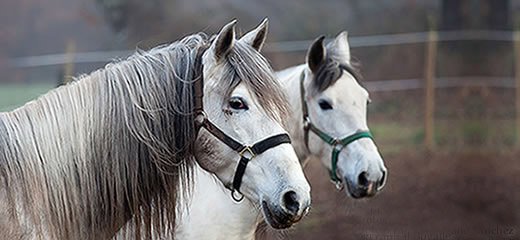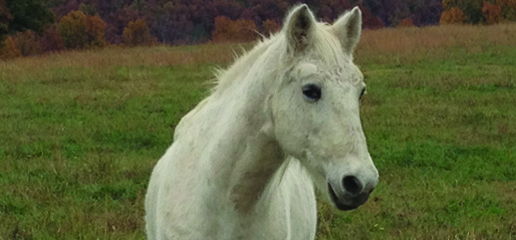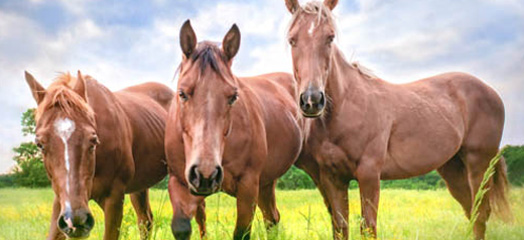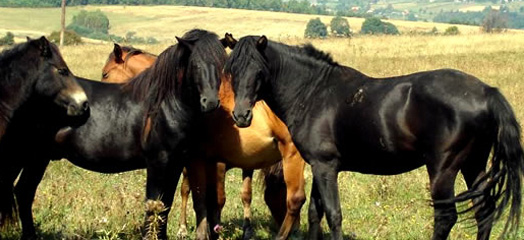How to Report Abuse
If you know of a situation in Marion County, Arkansas, or surrounding counties that you feel needs to be investigated, please contact Jo Ann Joseph at Hope for Horses. Call 513-827-7776 or 513-515-1510. If for some reason we are not immediately available, please contact the Marion County Sheriff's office.
When possible, it is best to use the Neglect/Abuse Report form (see below). The information you provide on that form is very useful to help us evaluate the situation.
Please click on the "Neglect/Abuse Investigation form" link below to open a printable version.
Neglect/Abuse Investigation Form
I saw a horse that looks skinny. Is it being neglected?
Possibly. However, there are numerous reasons a horse might be underweight and the situation should be evaluated by Hope for Horses.
Some of the reasons a horse might be underweight, fail to gain weight or be in poor condition are:
AGE: Sometimes older horses (20 plus years of age) have a difficult time absorbing enough calories to help them “fill out” and maintain proper body condition. With the older horse, a higher caloric senior equine feed is often required along with possibly adding vegetable oil to their diet. Underlying health issues, such as metabolic disorders, can make it hard for older horses to maintain proper body condition. A veterinarian can recommend specific supplements that may help the older horse maintain or gain weight.
PARASITES: When a horse is not wormed often enough, they will become skinny and unhealthy. If this is the case, a routine deworming program as recommended by a Vet may be all that is necessary. If the skinny appearance continues, the Vet may discover another underlying problem. For 99% of horses who receive adequate feed/forage and are still underweight, their condition is most likely due to an infestation of parasites or bad/missing teeth.
DENTAL ISSUES: All horses, especially older ones, require routine dental care. Horses teeth grow continuously but often do not wear evenly. That uneven wear can create sharp "points" on the tooth which can puncture the inside of the horse's cheek and create sores or ulcers. This makes it painful for the horse to chew its food properly. Improperly chewed food can lead to digestion problems and weight loss. As a horse ages, tooth loss may also make proper chewing/digestion of grass, hay and feed harder. As a general rule, a horse should have its teeth checked by a Vet at least once a year; older equines may need more frequent dental care.
LACK OF QUALITY FORAGE: Some horse owners are not aware of the quantity of pasture grass or the amount of hay a horse consumes in a day. Those owners will often say of their skinny horse, “My horse is fine, I give him plenty and he also has all that grass out in the yard or pasture.” Unfortunately, it may be Johnson grass, sudan, or scrub type foliage or weeds, which horses cannot eat. Each horse should have 2 to 5 acres of pasture, depending on the quality of the pasture, to get sufficient grass for optimum health. Pasture grass can be supplemented with 15 to 20 lbs. of good hay every day.
LACK OF FRESH WATER: Horses must have approximately 4 to 5 gallons of fresh water available to drink per day in order to process the grass/hay to maintain a healthy weight. A stagnant or frozen water source or pond does not constitute fresh water.
I'm not sure if a horse is being neglected. What should I do?
Even if you’re not sure whether a horse is being neglected or abused, please contact Hope for Horses or the Marion County Sheriff’s office. We can evaluate the horse's body condition and living conditions and take the appropriate action.















